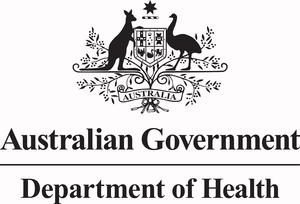
On 17/1/2022, A4 and a couple of our friends from the autism sector met (via video-link) with several officials from the Commonwealth Department of Health and Ageing. A4 provided a briefing document for the meeting (see below). Following is a summary report on the meeting.
Positives for A4 and the autism sector in Australia from the meeting were that
- the meeting happened - a dialogue with Health may have started with commitment to meet again in 2-3 months.
- Department officials informed us of coming changes to the MBS items relating to autism (see the text box below).
- The 2021-22 Budget included funding for the development of a competency framework for health professionals to better manage the health of people with intellectual disability. The Department is open to the potential extension of this project to cover competencies for managing people with ASD. Officials said “Ahead of our next meeting, we would welcome information from your organisations on health competencies specific to ASD management for health professional training. This will assist us in thinking about possible links to the education and training project which has just begun.”
- Department officials invited the organisations at the meeting (A4, Amaze, Australian Autism Alliance) to review the Department's Roadmap for Improving the Health of People with Intellectual Disability, looking for initiatives which would also be relevant for people with ASD as this could help identify potential areas for early collaboration.
In respect of ...
- A4’s request, documented in the briefing paper (received shortly before the meeting), “that the Commonwealth Department of Health and Ageing now recognise formally growing diagnosis rates of autism diagnoses in Australia and the substantial impact of autism on the health of autistic people”, was not discussed. Officials indicate they will be happy to discuss the data at our next meeting.
- Officials said, “we see ASD as distinct” and that they “also recognise that some people with ASD also have intellectual disability”. Their emphasis on comorbid ID concerns A4 – such emphasis focuses on ID and diminishing recognition of ASD as disability. The meeting did not discuss whether or not Health officials regard ASD as part of cognitive or psycho-social disability.
- calls from the autism sector for an ASD Roadmap (like the ID Roadmap), they advised this is a political decision; it would have to come from the Minister. This was an issue in the Australian Autism Alliance's last election manifesto: it will remain a key issue for the next election.
- “sensory sensitivity”, this is a matter for State and Territory health departments in relation to hospital and community health environments, but officials would welcome collaboration on possible initiatives in this area in primary care settings. Officials would also welcome ideas and examples from the participating organisations about best practice in ASD health care that could potentially be scaled up.
- Jenny (Australian Autism Alliance co-char) asked about co-design of autism policy ... the Health official's response was vague. A4 understands officials are open to co-design approaches on specific projects but are unable to make open-ended commitments.
- mental health and behaviour support, were not discussed. Officials say they are happy to invite "the right people" to discuss mental health to our next meeting.
MBS Changes for autism
In December 2021, the Australian Government announced an investment of $20.8 million to deliver changes to the Medicare Benefit Schedule (MBS), with a focus on Allied Heath, Aboriginal and Torres Strait Islander peoples’ health, and Participating Midwives services.
For Allied Health services, from 1 March 2023, access will be improved for complex allied health services to:
- increase the number of allied health assessment items for Autism Spectrum Disorder (ASD), Complex Neurodevelopmental Disorder (CND) and Disability (currently Autism, Pervasive Development Disorder and Disability Services) from four to eight per lifetime
- extend the eligibility of assessments under Autism Spectrum Disorder (ASD), Complex Neurodevelopmental Disorder (CND) and Disability Services to 25 years of age;
- improve allied health collaboration during assessments by allowing inter-disciplinary referrals between allied professionals during the assessment phase to facilitate in timely diagnosis.
These changes are a result of recommendations made by the MBS Review Taskforce (Taskforce) (recommendations 6, 7, 11 and 12) which were informed by the Allied Health Reference Group and extensive stakeholder consultation. More information on the Taskforce’s recommendations can be found on the Department of Health’s website.
To ensure the minimisation of the risk of unintended consequences, the Department of Health will work with the sector to assess how these recommendations can be implemented in a way that best meets the safety and care needs of patients.
For further information on these MBS changes, please contact Alex Nikro at alex.nikro@health.gov.au.
| Attachment | Size |
|---|---|
| 20220117HealthBrief_0.pdf (357.97 KB) | 357.97 KB |